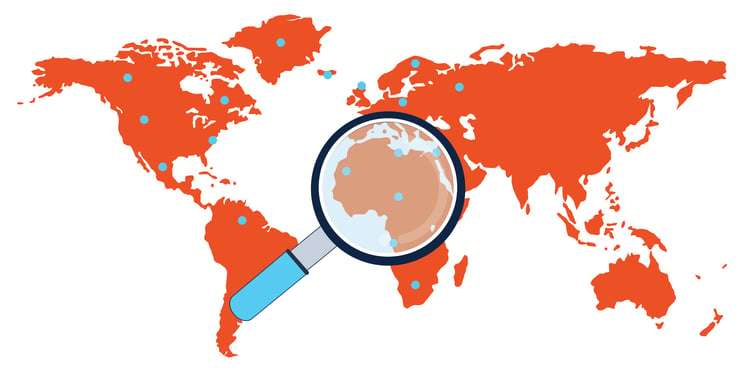We are often asked if continuous screening is required by the Financial Intelligence Centre Act (FICA) or if it is just additional work? To answer this question and add clarity we have tried to highlight sections of relevant legislation, FICA guidance and examples to explain why continuous screening is required.
In short, life happens - anything can happen at any time: An existing client may be added to the Targeted Financial Sanctions (“TFS”) list; a longtime employee could be recruited into a syndicate and coaxed into participating in terrorist related activities; an existing client could get a new role within Government that would make them a Domestic Politically Exposed Person (“DPEP”), they could possibly form a business relationship with a DPEP, or even marry an existing DPEP, which would in turn make them a DPEP related party or a known close associate (Sections 21F, 21G and 21H) .
Quite simply, based on the explanation above, an individual or entity’s circumstance may change at any time which may affect the level of risk that they pose to your business from a Money Laundering (“ML”) and Terrorist Financing (“TF”) perspective.
Sanctions and watch lists change at any time as individuals and entities are removed either through death, dissolution or when the basis for applying sanctions against the person/entity are no longer relevant.

The invasion of Ukraine in 2022 resulted in sanctions against Russia, President Vladimir Putin and his associates, increased updates were included to sanctions lists and a category of its very own was established for Russia specifically, this is the SSI list or Sectoral Sanctions Identification list. We are seeing similar actions with the more recent conflict in Palestine and Israel.
Screening is not only related to sanctions exposure, but also to identify exposure to Foreign and Domestic Politically Exposed Persons or Prominent Influential Persons. This informs the level of risk you are exposed to as a business, should screening only take place at onboarding or the next risk interval then a potential role change could have been missed before the next review cycle. This also informs the level of due diligence performed on the client.
How often should you screen?
Now that we know why it is important to screen, how do we establish how often we should be screening?
In this instance we refer to relevant legislation, Public Compliance Communication (“PCC”) and FICA guidance to better understand the requirements.
TFS screening places specific requirements to screen when clients / employees are onboarded as well as when there are changes to the TFS list. There are no set timelines around when the TFS list will change, that is why a reliable screening solution is beneficial, one that screens continuously to make sure that no updates are missed.
As per Guidance note 7 (point 198): "Accountable institutions must be able to determine whether they have a sanctioned person or entity as a client or whether a prospective client is a sanctioned person or entity in order to determine their exposure to TFS-related obligations. This implies that accountable institutions which are likely to come into contact with sanctioned persons or entities are able to screen clients and prospective clients against the relevant sanctions lists. This should be done during the client-take-on process as well as subsequently as and when the UNSC adopts new TFS measures or expand existing ones.”
Draft Guidance note 6A point 42 also recommends “ongoing screening of existing client databases to detect potential matches when there are changes to the UNSC sanction lists or to the status of existing client identification information”.
According to the FIC, the frequency of scrutinising your customer’s information would depend on the customer’s risk. As stated in Guidance Note 7 (point 129): “The intensity and frequency of ongoing due diligence in respect of a given business relationship must be determined on the basis of the accountable institution’s understanding of ML/TF risks associated with that relationship. An accountable institution must include, in its RMCP, the manner in which and the processes it will have in place to conduct ongoing due diligence and account monitoring of business relationships.”
Guidance Note 7 continues to state (point 199): “Accountable institutions must therefore determine the likelihood that their client base and intended target market may include sanctioned persons or entities. This should assist the accountable institution in determining the amount of effort and resources it requires in order to determine whether they have sanctioned persons or entities as clients or whether prospective clients are sanctioned persons or entities. Accountable institutions that have business relationships with foreign persons and entities are more vulnerable to dealing with sanctioned persons and entities.”
This risk based approach is also mentioned in PCC 44 (point 5.13) as it states: “An accountable institution should determine the likelihood of its client being a sanctioned person/entity, and the likelihood that the client may later become a sanctioned person/entity. The effort and resources applied in mitigating this sanctions risk are dependent on this likelihood.”
With reference to the guidance we have established that continuous screening is important. This is how you ensure that you know who your client or employee is and that you are on top of any changes.
DocFox screens your clients daily against sanctions and other watchlists, and combs through billions of online news articles searching for relevant media. DocFox will screen your client upon application as well as on an ongoing basis against these watchlists and will notify you of any potential matches. Our comprehensive DocFox watchlist is included in our screening and provides global coverage for identifying Domestic Politically Exposed Persons (DPEPs), Foreign Politically Exposed Persons (FPEPs) and Prominent Influential Persons (PIPs), including their known close associates. Read more here.